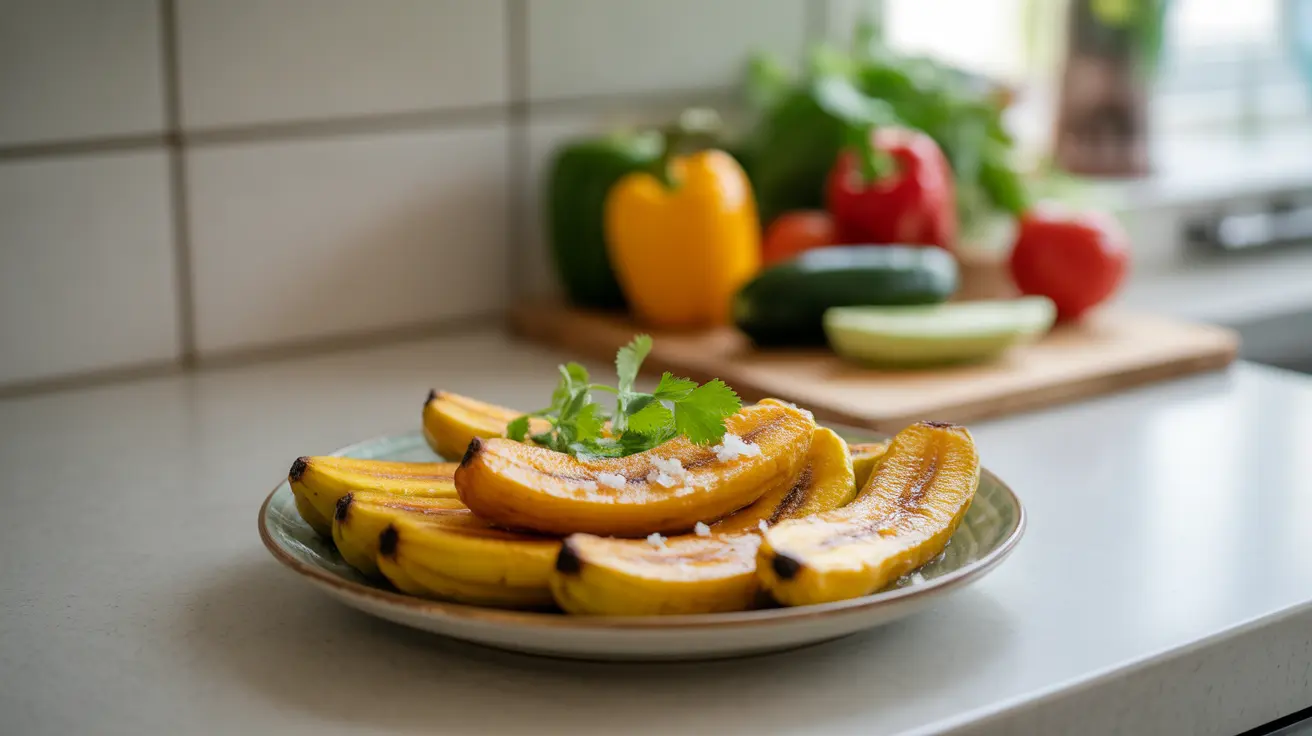Plantains, often called cooking bananas, are a versatile and nutritious staple food enjoyed across many cultures worldwide. While they might look similar to regular bananas, these starchy fruits offer their own unique set of health benefits and nutritional advantages. Understanding their nutritional profile and proper preparation methods can help you make informed decisions about incorporating them into your diet.
Nutritional Profile of Plantains
Plantains are packed with essential nutrients that contribute to overall health and wellness. They're particularly rich in complex carbohydrates, dietary fiber, and various vitamins and minerals that support bodily functions.
Key Nutrients in Plantains
A single cup of cooked plantains contains:
- Vitamin C: Important for immune function
- Vitamin A: Essential for eye health
- Potassium: Crucial for heart health
- Magnesium: Supports muscle and nerve function
- Fiber: Aids in digestive health
- B6: Important for brain function and metabolism
Health Benefits of Plantains
Digestive Health Support
The high fiber content in plantains promotes healthy digestion and regular bowel movements. This dietary fiber also helps maintain gut health by supporting beneficial bacteria and preventing constipation.
Blood Pressure Management
Plantains are naturally rich in potassium, which plays a crucial role in maintaining healthy blood pressure levels. Regular consumption may help support cardiovascular health as part of a balanced diet.
Immune System Support
The combination of vitamin C and vitamin A in plantains helps strengthen the immune system. These antioxidants protect cells from damage and support the body's natural defense mechanisms.
Healthy Preparation Methods
The way you prepare plantains can significantly impact their nutritional value. Here are some healthy cooking methods:
Recommended Cooking Techniques
- Baking with minimal oil
- Boiling or steaming
- Grilling
- Air frying as a healthier alternative
Avoid deep frying or using excessive amounts of oil to maintain the health benefits of plantains while keeping added fats to a minimum.
Plantains vs. Bananas: Understanding the Differences
While plantains and bananas are related, they differ in several important ways. Plantains contain more starch and less sugar than regular bananas, making them more versatile for cooking. They also offer slightly different nutritional benefits, with plantains generally having higher amounts of certain vitamins and minerals.
Frequently Asked Questions
Are plantains healthy to eat regularly given their high carbohydrate content?
Yes, plantains can be healthy to eat regularly as part of a balanced diet. While they are high in carbohydrates, they provide complex carbs that release energy slowly and contain important nutrients. The key is portion control and choosing healthy preparation methods.
What are the main nutritional benefits of plantains compared to bananas?
Plantains contain more vitamin A and C than bananas, along with higher amounts of potassium and fiber. They're also lower in sugar and higher in starch, making them more suitable for savory dishes.
How should plantains be prepared to keep them healthy and low in fat?
The healthiest ways to prepare plantains include baking, boiling, or grilling with minimal oil. Avoid deep frying and instead opt for methods that don't require large amounts of added fats.
Can eating plantains help with blood pressure and heart health?
Yes, plantains can support heart health due to their high potassium content, which helps regulate blood pressure. Their fiber content also contributes to cardiovascular health by helping manage cholesterol levels.
Are plantains a good source of fiber and vitamins for digestive and immune support?
Yes, plantains are an excellent source of both fiber and essential vitamins. The fiber supports digestive health, while vitamins A and C contribute to immune system function.
When incorporated mindfully into a balanced diet, plantains can be a nutritious and satisfying addition to your meals, offering numerous health benefits while providing sustainable energy throughout the day.




